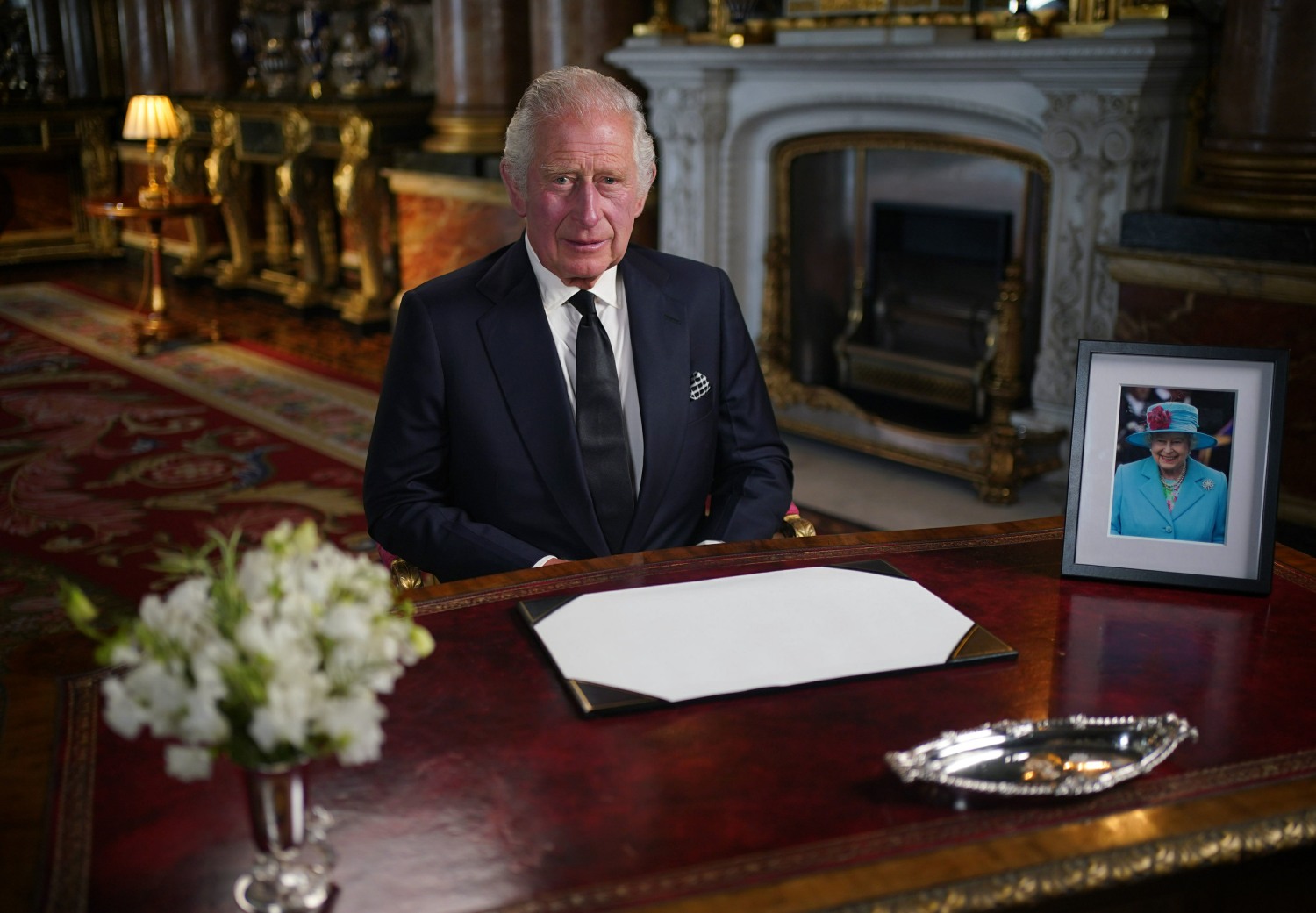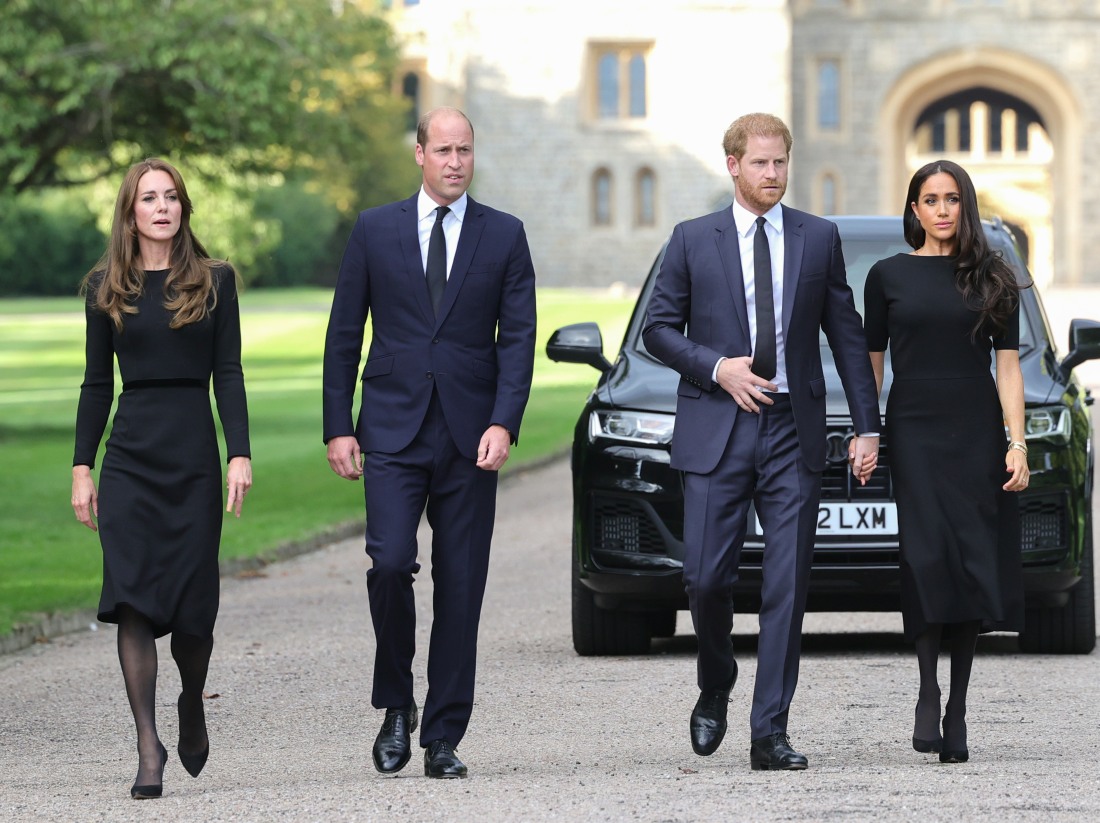VF: The court of King Charles needs a PR strategy for the modern era
Vanity Fair has phased out Katie Nicholl from their royal coverage for the most part – every few months, she’ll write an exclusive, but the magazine’s weekly royal coverage tends to be done by Erin Vanderhoof these days. Vanderhoof wrote a new thinkpiece called “The Court of King Charles Needs a PR Strategy for the Modern Era.” It’s part history lesson and part advice-column for the new king, because it’s abundantly clear that King Charles’s current PR strategy is not working. They’ve spent years trying to shove Camilla down everyone’s throats and, no matter what, the Montecito royal court is still the biggest royal gossip story out there. You can read the full piece here. Some highlights:
The old media playbook: The royals have complained about the media as long as Britain has had journalists, or royals, but they have also seen journalists as partners. Because the monarchy’s focus is on dignity and continuity, they varied little from the media playbook established in previous generations, even as the British press slowly became a fearsome and profitable machine. The Firm managed the fallout from that era internally, with different palace offices learning to wield power with selective disclosure.
The Sussexes understand the modern media more than the Windsors: Harry and Meghan seem to have reacted with more alacrity, perhaps owing to Meghan’s previous media experience, or her American-ness and civilian background, or both; they’ve shifted their media approach to appeal to an American audience and a 24/7 news cycle. Nearly a year into Charles’s reign, the rest of the royals still seem to be relying on a playbook from another century. When the Sussexes decamped, the palace kept at least one of the social media experts Harry and Meghan had recruited, and it shows in the family’s emoji-laden Instagram captions. But Charles, William, and Kate have refused to push back against a media culture increasingly leaving Britons dispirited, polarized, and—as the aftermath of Brexit has proven—economically stagnant. It’s still unclear if the monarchy will be able to tell a story persuasive enough to sway the younger generations who view the institution with unprecedented skepticism, but it’s never been more obvious that they need to try.
The first days of Charles’s reign: The first test of the reign of King Charles III should have been his ability to carry on his duties despite the chaos in Parliament that led to the ouster of Liz Truss only weeks after that of Boris Johnson, his exit just days before Queen Elizabeth’s death. But even amid shocking political instability, headlines about discord in his family covered front pages and filled news feeds, illustrating both the ardent interest of the press as well as that of readers. And it’s more than just prurient: The family has become emblematic of a culture war in a deeply divided country. Despite its historic insistence on flouting politics, the royal family is now inherently political.
How social media changed the landscape: By the mid-2010s, the big-name British tabloids had learned to ply their attention strategies online, paying plenty of attention to the chatter on social media. And while the daily papers delivered to the various royal residences haven’t altered their design too much in decades, the ecosystem they exist in has changed entirely. Perhaps, in the decade between Prince William and Kate Middleton’s engagement and Harry and Meghan’s exit, the royals didn’t realize they were dealing with something entirely changed.
The Sussexes are a reputational crisis for the monarchy: In his first televised address as king, Charles sent his “love for Harry and Meghan, as they continue to build their lives overseas.” It signaled his knowledge that some emotional embrace of the Sussexes would be necessary, if only to prove he isn’t a deadbeat dad. They had a low-key presence during the Platinum Jubilee in June and the funeral rites in September as an act of cooperation. But any sense that the prodigal son would shy away from endangering his relationship with the family was shattered with the December release of Netflix’s Harry & Meghan. By the time Spare was released in January, the couple had already stoked British outrage and heated discussion on both sides of the pond. Harry’s memoir was so full of stunning allegations and heartbreaking asides that it isn’t hyperbolic to say it represents a reputational crisis for the rest of the family.
How the palace reacted to Spare: And yet the [palace’s] fingerprints are there. In the weeks after Spare was released, the palace remained as leaky as ever, with reports in the Independent and The Telegraph saying that internally the Windsors had decided that Harry had lost his mind. He was “taken in by the cult of psychotherapy and Meghan,” an anonymous source told an Independent writer the week the book came out. (Independent editor in chief Geordie Grieg is a longtime friend of Camilla’s.) This February, Frogmore reentered the narrative. The Sun reported that Charles had decided to offer the house to Andrew; the New York Post spoke to a source who said the eviction process began the day after Spare’s release. The couple are due to depart the house for good after the coronation.
The king’s priorities: These stories—along with confusion about whether Harry and Meghan would attend the coronation and a muted response when the couple decided to use “prince” and “princess” titles for their children—make it seem like the king has chosen his standing with the press over his relationship with them. There is some wisdom to this—opinion around Meghan and Harry has been sharply negative since the royal exit. The disapproval has even spread to their toddlers, Archie and Lilibet. In March, the data analytics company YouGov UK found that 51 percent of British adults surveyed believed the children should not be given titles. (The leftist British podcast Trashfuture, commenting on the occasionally lackluster results for children as young as two or three in monarchy-related polls, has noted the absurdity that “Britain has a baby with an approval rating.”)
[From Vanity Fair]
There’s also a lot of talk, within this piece, about how “never complain, never explain” isn’t a relevant PR strategy in the modern age. Which King Charles agrees with – in the past seven months, none of the royals have wielded “never complain” at their enemies – they’ve all been openly complaining and explaining constantly. Kensington Palace and Buckingham Palace set the tone in the 48 hours after QEII passed away, when the two royal courts got into a briefing war about how Charles banned Meghan from Balmoral, why Harry caught a separate flight up to Scotland and who came up with the idea for the Windsor Castle walkabout. It continued from there, with Buckingham Palace and Kensington Palace openly briefing the media on how they feel on a daily basis about Meghan and Harry. This IS the new PR strategy, and it’s also pretty bad. Oh well! Can’t polish a turd!
Photos courtesy of Avalon Red.
Source: Read Full Article

